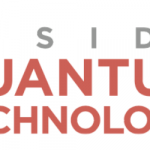John Martinis Says “The Jury’s Out” Regarding China’s Claims of Quantum Supremacy

(FinancialReview) John Martinis, former Google quantum physicist says there are “a lot of questions” over Chinese scientists’ claim to have made a major leap forward in quantum computing. “So the jury’s out. People have to look at it. And that’s what happens in science,” he said.
It came just over a year after Google used a different method to achieve a similar milestone using its Sycamore machine. Chinese media claimed the Chinese computer had completed the calculation 10 billion times faster than the Google quantum computer.
Quantum computing expert John Martinis said the jury was out on whether the Chinese experiment would lead to something useful or whether it was “just some nice little science experiment”.
Professor John Martinis – who left Google to join renowned Australian quantum computing expert Professor Michelle Simmons at University of NSW-based Silicon Quantum Computing earlier this year – led Google’s push to show quantum computers could outperform conventional supercomputers, known as “quantum supremacy”.
Professor Martinis said China’s push to achieve quantum supremacy was to be welcomed, but questions remained.
He said an important question was whether the quantum computer was programmable, and therefore able to perform different tasks, or whether it had been specifically built to perform one task. If the latter was the case, it was much less significant. “Or do we need to have them as programmable and reusable computers in the end? It’s nice to run algorithms right now and you get scientific papers out of it, but if you really want to build something useful you want to do different problems.
And also in the end you have to do error correction, and [for] error correction, it has to be programmable. So it might be a nice experiment right now but it’s not necessarily on the pathway to building something powerful and that’s what’s very difficult in quantum papers … You need to find out whether the experiment is actually taking you to a long-term success or is it just some nice little science experiment.”



















